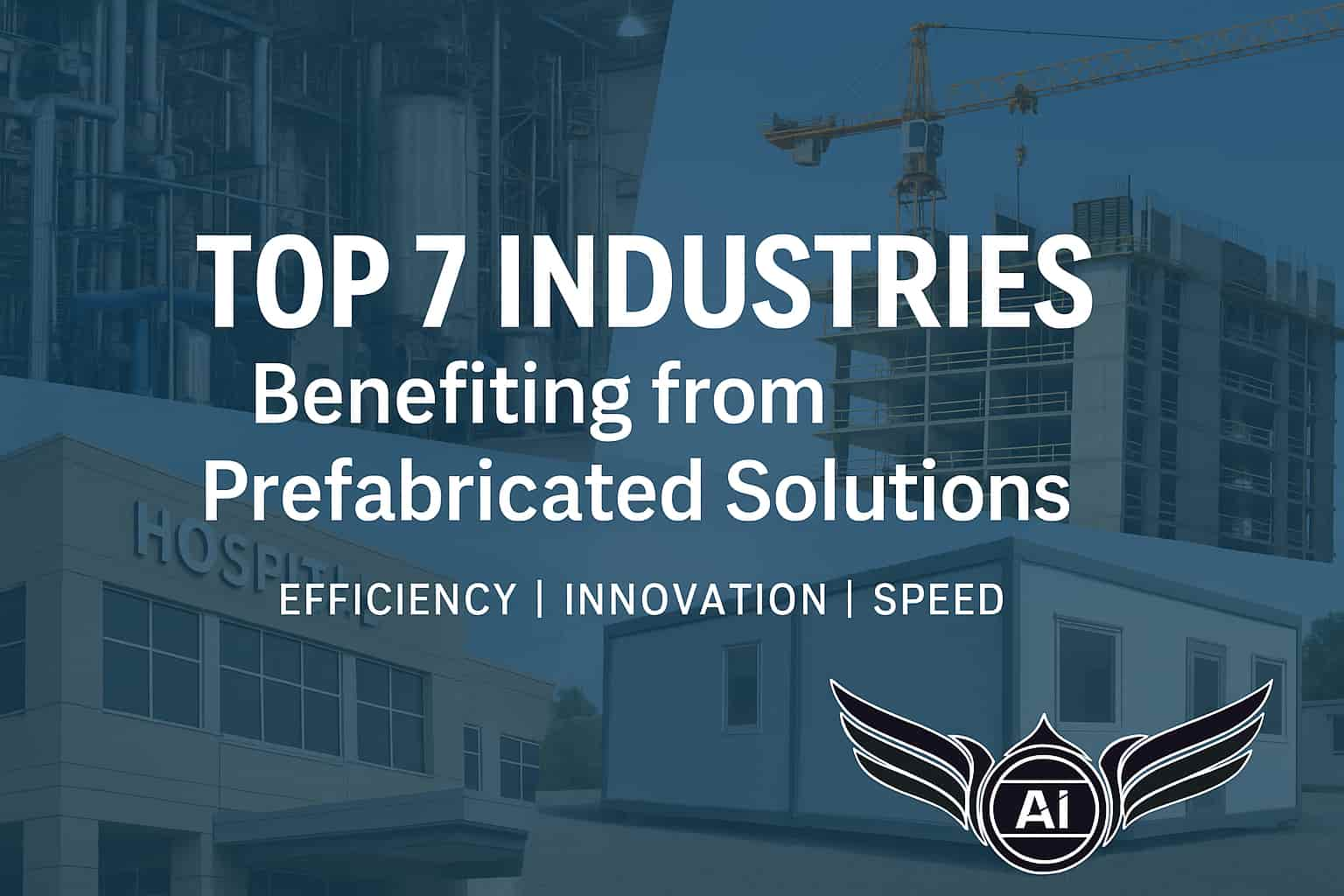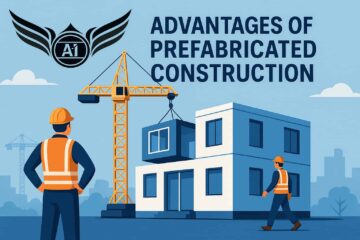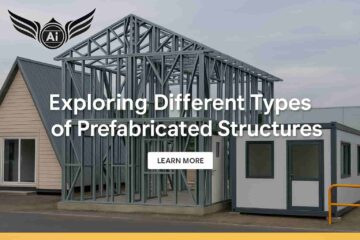Top 7 Industries Benefiting from Prefabricated Solutions
Prefabricated solutions, also known as modular construction, have revolutionized the construction industry by offering numerous advantages in terms of efficiency, cost-effectiveness, and sustainability. These innovative building techniques have found application across various industries, transforming the way structures are designed, built, and utilized. In this blog post, we will explore the top industries that are benefiting from prefabricated solutions.
Here are the top 7 industries that are significantly benefiting from prefabricated solutions:
- Construction and Real Estate: The construction and real estate industry has witnessed significant benefits from prefabricated solutions. Prefabrication enables faster construction timelines, allowing developers to complete projects more efficiently and reduce overall costs. Modular construction techniques have been used in building residential complexes, commercial buildings, and even skyscrapers. Prefabricated components offer design flexibility, enabling architects and developers to create unique structures tailored to the needs of the market.
- Healthcare: The healthcare industry has embraced prefabricated solutions for the construction of hospitals, clinics, and medical facilities. Prefabrication allows for the rapid deployment of healthcare infrastructure, reducing construction time and minimizing disruption to ongoing medical services. Modular healthcare facilities can be customized to meet specific healthcare standards, ensuring compliance and providing efficient spaces for patient care. Prefabrication also offers the flexibility to expand or adapt facilities as healthcare needs evolve.
- Education: Prefabricated solutions have made a significant impact on the education sector. Modular buildings are used to construct classrooms, administrative offices, libraries, and even entire schools. Prefabricated educational facilities offer faster construction timelines, cost savings, and flexibility to accommodate changing enrollment needs. They provide comfortable learning environments with modern amenities, meeting the evolving requirements of educational institutions.
- Hospitality and Tourism: The hospitality and tourism industry has leveraged prefabricated solutions for hotels, resorts, and temporary accommodation structures. Prefabrication allows for faster construction, enabling hoteliers to open their doors to guests sooner and capitalize on tourism opportunities. Prefabricated hospitality structures provide flexibility for seasonal adjustments and expansions, allowing for efficient space utilization during peak travel periods.
- Retail and Commercial: Prefabricated solutions have been widely adopted in the retail and commercial sectors. Prefabricated retail stores, shopping centers, warehouses, and office spaces offer benefits such as reduced construction time, cost-effectiveness, and design flexibility. Retailers can quickly establish their presence in new locations, adapt their spaces to changing consumer trends, and create appealing architectural designs to enhance the shopping experience.
- Government and Public Sector: Government agencies and the public sector have recognized the advantages of prefabricated solutions in addressing infrastructure needs. Prefabrication enables the rapid construction of public facilities, such as government offices, community centers, recreational spaces, and emergency response buildings. These structures can be designed to meet specific requirements, ensuring functionality, durability, and cost efficiency.
- Disaster Relief and Humanitarian Aid: Prefabricated solutions play a vital role in disaster relief and humanitarian aid efforts. In emergency situations, prefabricated structures provide immediate shelter for displaced individuals and communities. They are quick to deploy, cost-effective, and customizable to meet specific needs. Prefabricated structures offer temporary housing, medical clinics, schools, and other essential facilities during times of crisis, ensuring the safety and well-being of affected populations.
In Conclusion
Prefabricated solutions have made a significant impact on various industries, revolutionizing the way structures are built and utilized. From construction and real estate to healthcare, education, hospitality, retail, government, and disaster relief, prefabrication offers speed, cost savings, sustainability, and flexibility. As the construction industry continues to evolve, prefabricated solutions are expected to play an increasingly important role in meeting the diverse needs of these industries.



